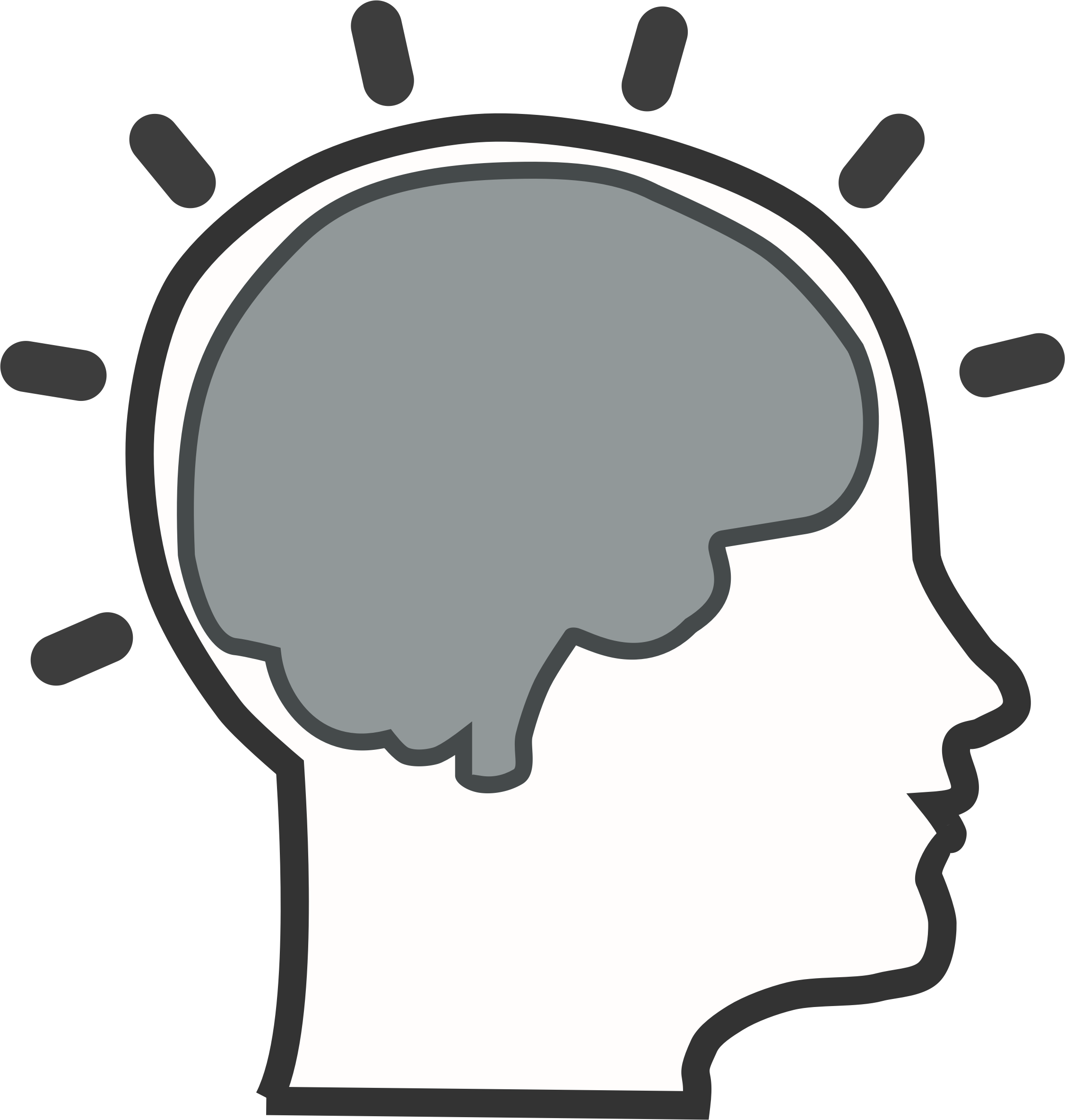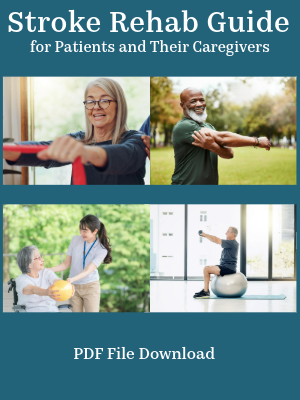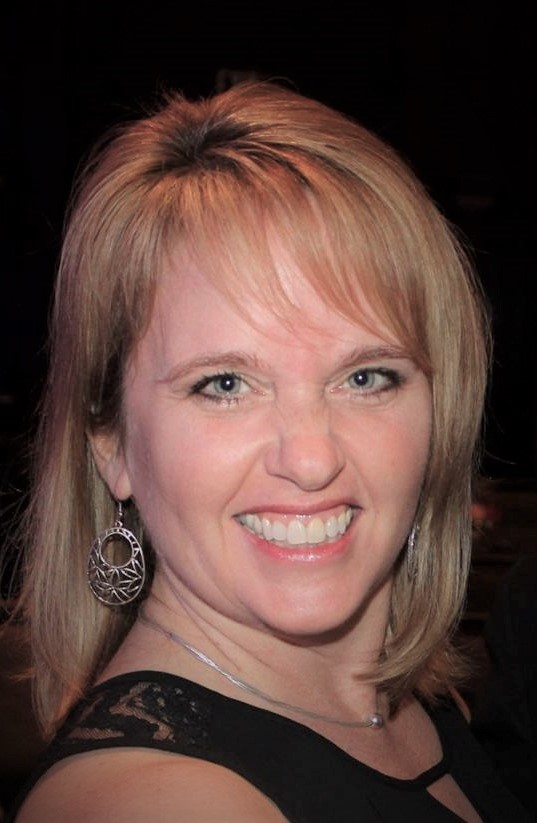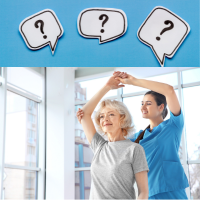Cognitive Impairment After Stroke
Medically reviewed by Karen Murray, OT, CHT, CSRS - written by Stroke-rehab.com
|
Stroke symptoms often include cognitive deficits. Cognitive impairment after stroke may manifest in different ways including confusion, memory problems, decreased mental ability, impulsiveness, distractibility, impaired judgement, executive dysfunction, and agnosognosia (patient's inability to recognize his/her impairment). |
 |
Stroke symptoms often include cognitive deficits. Cognitive impairment after stroke may manifest in different ways including confusion, memory problems, decreased mental ability, impulsiveness, distractibility, impaired judgement, executive dysfunction, and agnosognosia (patient's inability to recognize his/her impairment).
Confusion - The stroke victim may appear disoriented, have short term memory loss, or demonstrate bizarre or unusual behavior. Confused patients will have problems sustaining a meaningful conversation. Sometimes a patient may appear confused but actually have aphasia which is a speech disorder where the patient can have difficulty producing or comprehending speech. See the aphasia page for more information.
Memory Problems - Memory loss after a stroke is not uncommon. It can present as an inability to learn and recall new information or remember and retrieve long term memory. Sometimes the loss is subtle, and a caregiver may not notice memory problems until the patient attempts more complicated activities of daily living. Ideas to help the stroke patient with memory deficits, include establishing a standard daily routine, keeping frequently used items in a designated place, and making a memory notebook for important information.
Impulsiveness - The impulsive stroke patient will not think before acting and has trouble with impulse control. Impulsiveness is most common in patients that have experienced a frontal lobe or right brain stroke. Safety may be compromised because the patient may try to do activities that he or she is incapable of doing (i.e. driving, cooking, walking without assistance, etc.) Caregivers may think that their loved one is trying to maintain independence when in fact the patient's impulse control has been impaired. Impulsiveness can also cause inappropriate behavior responses such as sudden anger, yelling, crying or rude remarks.
One can help the impulsive stroke victim by creating a safe environment and thinking ahead in terms of needs. For example, keep needed items in reach such as the phone or tv remote. Schedule regularly planned meals and toileting breaks to keep the patient from attempting to cook or go to the bathroom without assistance. Also, keep dangerous or tempting items out of sight and reach (sharp knives, matches, car keys, etc.)
Distractibility - After a stroke, one may present with distractibiity or decreased attention span. It may be difficult to concentrate on one subject. This can make rehabilitation challenging because attention is necessary for listening to instructions and completing rehab exercises.
Impaired Judgement - As a result of cognitive deficits, the stroke patient may present with impaired judgement. It is imperative that individuals with poor problem solving skills and impaired judgement have supervision at home to avoid injury and accidents.
Executive Dysfunction Executive function consists of the ability to plan, organize, monitor one's behavior, and stop/start tasks. When the executive system is impaired, one may present with disorganization, inability to plan ahead, social inappropriateness, poor insight regarding their disability, and inability to correct their mistakes.
Treatment of Cognitive Impairment After Stroke
Cognitive deficits are often addressed in speech and occupational therapy. Some centers may even have cognitive therapists. One may need to consult with a neuropsychologist as well. Treatments focus on improving cognitive skills or using adaptive aids as necessary to compensate for cognitive loss (e.g. memory books, communications aids, planners/calendars, electronic aids, etc.) Cognitive impairment after stroke can have serious effects on one's lifestyle and on interaction with family and friends. It is important to seek treatment and for caregivers to receive education on how to interact with their loved one with cognitive deficits. Caregivers often expect the stroke survivor to act as before and may not understand why behavior is so different. This can lead to frustration and arguments, so caregiver training is imperative to help cope with these changes.
For more information on cognitive rehabilitation, download this pdf from www.strokengine.ca: https://strokengine.ca/wp-content/uploads/2020/08/PFinfo_Cognitive_Rehabilitation_Eng.pdf
Get Our Stroke Rehab Guide

Our comprehensive stroke rehab guide in pdf format is designed for both patients and caregivers who want clear, practical ways to support recovery, improve daily function, and regain independence at home. It includes
- Rehab exercises with pictures for safe home practice
- Physical, occupational, and speech therapy guidance
- Tips for daily activities and adaptive equipment
- Answers to common questions from patient and caregivers
- Information on stroke causes, treatment, and prevention
A single therapy visit can run $150 or more. The Stroke Rehab Guide is only $14.99, and includes a pdf guide you can continue to refer to in the future with exercises and information on stroke recovery. In addition, any time an update or new version of the guide is written, you will get the updated version for free.

About the Author
Karen Murray, OTR, CHT, CSRS, is a licensed occupational therapist, Certified Stroke Rehabilitation Specialist, Certified Hand Therapist, and Certified Personal Trainer with over 29 years of experience working with stroke survivors in hospital, outpatient, and home settings. She founded Stroke-Rehab.com to help patients and caregivers better understand stroke recovery, find evidence-based resources, and regain independence at home.
Medical Disclaimer: All information on this website is for informational purposes only. This website does not provide medical advice or treatment. Always seek the advice of your physician or other healthcare provider before undertaking a new healthcare or exercise regimen. Never disregard professional medical advice or delay seeking medical treatment because of something you have read on this website. See the disclaimer page for full information.













